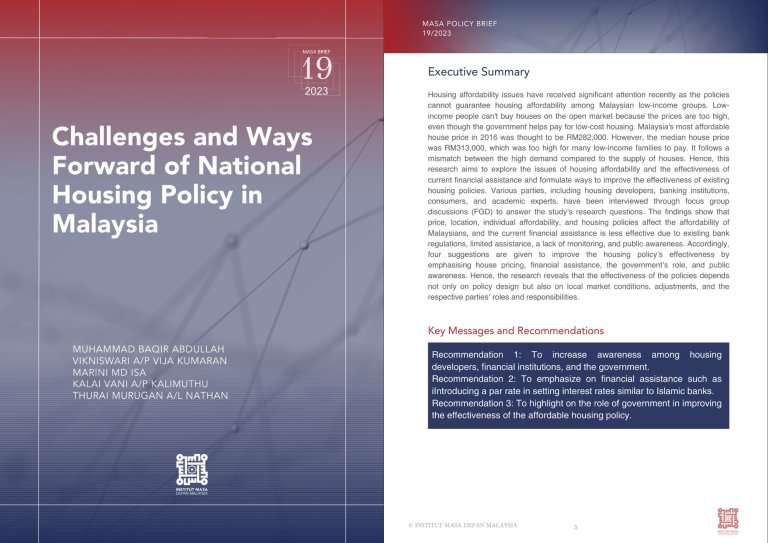There are many projects by the government to address the issue of affordable houses. However, those housing programmes are still limited with various issues. Based on our findings, four main factors identified, such as location, price, policy, and individual ability, mostly affect the decision to buy an affordable house.
An accessible and convenient location near a workplace with basic facilities is the main priority when buying a house. Masri et al. (2016) found that location positively affects purchasing decisions. Besides, a reasonable price also plays an important role for buyers. Problems occur when there is a mismatch between the demand and supply of houses. Most developers are worried about the profit margin as they need to compromise the construction cost when developing more affordable houses, as it will affect the quality of the houses. Hashim (2010) supported the arguments by indicating that the supply condition, demographic development, and mortgage market innovation could affect housing prices.
Liu and Ong (2021) stated that the National Housing Policy is poorly implemented due to faulty market analysis and insufficient information. The lack of housing policy in placing more quotas for private developers in each construction project leads to a lower supply of affordable houses. Ineffective financial assistance minimises buyers’ purchasing power, and the unawareness among the public leads them to rent the house instead of owning it continuously. Hence, the long-term implementation of housing plans has not significantly improved Malaysian housing affordability as expected. Eligible individuals with high commitment and low-income face difficulties getting bank approval to buy houses. Hassan et al. (2021) support the argument that there is an imbalance between high living costs and income earned.
